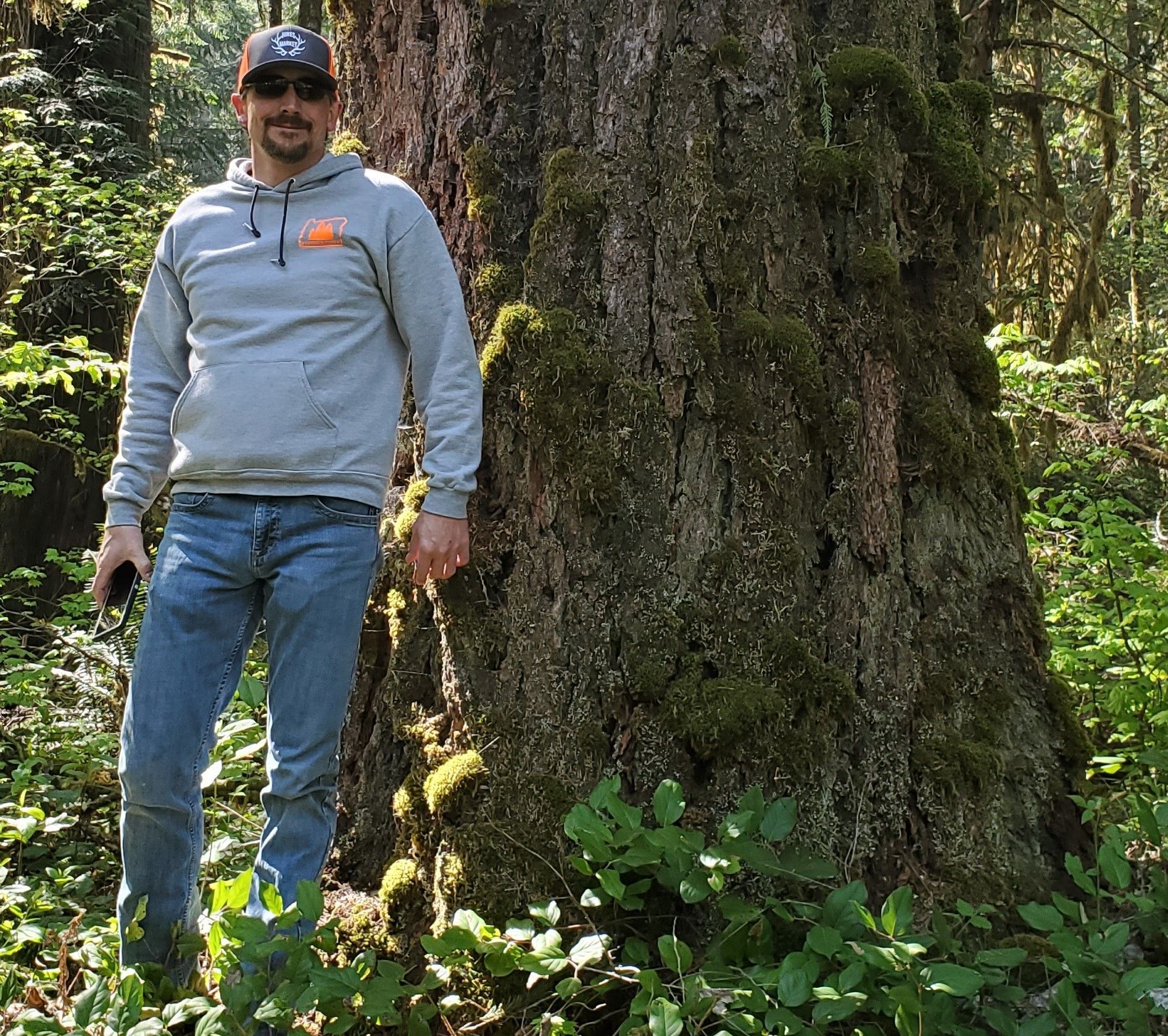Matthew Cawlfield, Forest Service Silviculturist

As described by the U.S. Forest Service "Silviculture is the art and science of controlling the establishment, growth, composition, health, and quality of forests and woodlands to meet the diverse needs and values of landowners and society such as wildlife habitat, timber, water resources, restoration, and recreation on a sustainable basis." This is the work Matt Cawlfield does on a daily basis with his team as a District Silviculturist in the southern Malheur Forest.
To maintain and restore a forest's health there is a lot of management that happens and that means Matt and his team spend their days developing and producing silviculture prescriptions. This can include "prescribed fire, wildlife habitat improvement, timber harvesting and cutting trees in campgrounds for human safety", all of these must have a silvicultural prescription. These prescriptions are carefully planned and thought through to consider "ecological, economic, and societal objectives and constraints".
"My typical day begins with checking in with my team. I have a great workgroup [with] Jack Trotter, Doug Hall, Cam Cornell and Angela Yost. I interact with all of these folks to ensure that our workload is moving forward smoothly. My own duties as of right now are filled with data analysis and data verification for our next landscape scale project on the district. Currently I am defining the existing conditions in regards to stand structure, structure distribution across the project, species composition, and tree density. These existing conditions will tell me where we need to focus our efforts for treatment to get the maximum amount of acres restored or back into range of variability [The historic range of variability (HRV) or range of variability (RV) is historically what the forest looked like before human impacts of settlement of the west]. It can be tedious work, typically it involves sifting through around 2000 individual stands of data that make up the entire project. I enjoy the process as you can see the large landscape picture start to unfold as the data starts coming together."
"Foresters have to be able to think decades ahead to try and meet objectives. Most of the time the desired conditions of a treatment may not even be totally realized within one's career, especially in these dry pine forests where growth is so much slower than other forested environments. What is challenging is to help others understand the long-term effects of these decisions. It is very easy just to see what is in front of you today, and much more difficult to think about what you are leaving, and what environmental processes will take place between today, and 30 to 50 years from now. Explaining the long term view of ecosystem management is definitely one of the most challenging aspects of my job."
This is one of the reasons Matt's contributions as a participant with the Harney County Forest Restoration Collaborative is so valuable. "Collaboration is key to successfully fulfilling my duties. It is very important to me that the folks that depend on this forest are involved. I am from a multi-generational family in Harney County, I grew up playing in this forest, as did generations before me. Much like many families in this county we all have some sort of tie to the forest for one use or another. Multiple use management is challenging, ensuring all aspects are accounted for is key, one use may not be another’s use. So collaboration ensures that I am accounting for the needs when considering treatments and allows for open communication with stakeholders."
The Harney County Forest Restoration Collaborative takes field trips into the forest as often as possible during the spring, summer and fall months and you can usually find Matt on these trips visiting sites where silviculture prescriptions have been applied or are being planned: "Going to these sites and visually seeing what the problems are with stakeholders and discussing the silvicultural treatment needed to meet desired conditions is invaluable. Being able to show that as a manager I am not just logging to log, or thinning to thin has allowed for trust and respect to build among stakeholders. There is no better way to show that treatments are needed and that conditions require such treatments than going and seeing it firsthand."
Matt is an avid user of the forest he helps cares for and is now sharing it with another generation of Cawlfield's, his son Wade. "I am very family oriented and spend most of my free time either with them or recreating with them. My personal hobbies include as much fishing and hunting as possible. I also enjoy reloading, long range target shooting, and mild gunsmithing. I am an avid outdoorsman and spend many of my weekends camping with family and friends. Riding four-wheelers, scouting for hunting season, and exploring. This last summer I added gardening to my list of hobbies and have greatly enjoyed all the rewards of growing my own garden."

